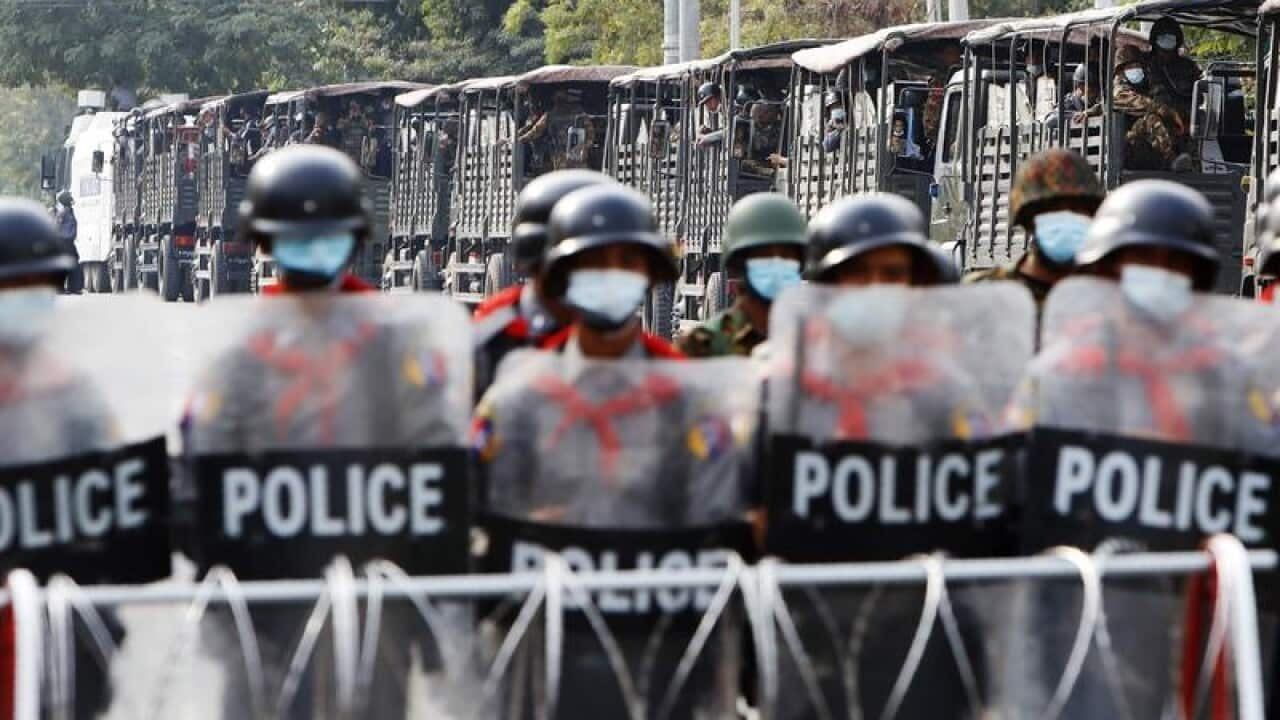Indian defence chief General Bipin Rawat was among 13 people killed in a helicopter crash, raising questions over the future of military reforms he was leading.
Mr Rawat was India's first chief of defence staff, a position that the government established in 2019, and was seen as close to Prime Minister Narendra Modi.
The 63-year-old was travelling with his wife and other senior officers in the Russian-made Mi-17 chopper, which crashed near its destination in southern Tamil Nadu state on Wednesday.
An eyewitness said he had seen passengers falling from the helicopter before the crash, and that one person had crawled out from the wreckage.
The sole survivor, a captain working at the DSSC, was being treated for his injuries at a nearby military hospital, the air force said.
Mr Modi said Mr Rawat was an outstanding soldier and "true patriot" who had helped modernise the country's armed forces.
"His passing away has saddened me deeply," the prime minister wrote on Twitter. "India will never forget his exceptional service."
Strategic analyst and author Brahma Chellaney tweeted that Mr Rawat's death "couldn't have come at a worse time" when "China's 20-month-long border aggression has resulted in a warlike situation along the Himalayan front".
Footage from the crash showed a crowd of people trying to extinguish the fiery wreck with water buckets while a group of soldiers carried one of the passengers away on an improvised stretcher.
Mr Rawat was heading to the Defence Services Staff College (DSSC) to address students and faculty from the nearby Sulur air force base in Coimbatore.
The helicopter was already making its descent at the time of the crash and came down around 10 kilometres from the nearest main road, forcing emergency workers to trek to the accident site, a fire official told AFP.
Mr Rawat was chief of the 1.3 million-strong army from 2017 to 2019 before his elevation to defence services chief, which analysts said was to improve co-ordination between the army, navy and air force.
New Delhi is looking to increase its military effectiveness in the face of heightened tensions with China following deadly clashes in a disputed Himalayan region, as well as its longstanding conflict with neighbouring Pakistan.
"He had given a tremendous push to the integration of the three services, so his successor has big shoes to fill," retired Lieutenant General Deependra Singh Hooda, a former head of the Indian army's Northern Command, told AFP.
"He had a tough job ... we will need someone to give the same impetus that he had given so that the reforms that he started continue at the same pace."

Firemen and rescue workers stand next to the debris of an IAF Mi-17V5 helicopter crash site in Coonoor, Tamil Nadu, on 8 December, 2021. Source: AFP
Career officer
Mr Rawat came from a military family with several generations having served in the Indian armed forces.
The general joined the army as a second lieutenant in 1978 and had four decades of service behind him, having commanded forces in Indian-administered Kashmir and along the Line of Actual Control bordering China.
He was credited with reducing insurgency on India's northeastern frontier and supervised a cross-border counter-insurgency operation into neighbouring Myanmar.
But at the same time he was a polarising figure whose willingness to make political statements put him at odds with the military's traditional neutrality in the world's largest democracy.
He was considered close to the Modi government and turned heads last month when he reportedly made an approving reference to "lynching terrorists" in the contested territory of Kashmir.
India's air force said an inquiry was under way into the incident.












